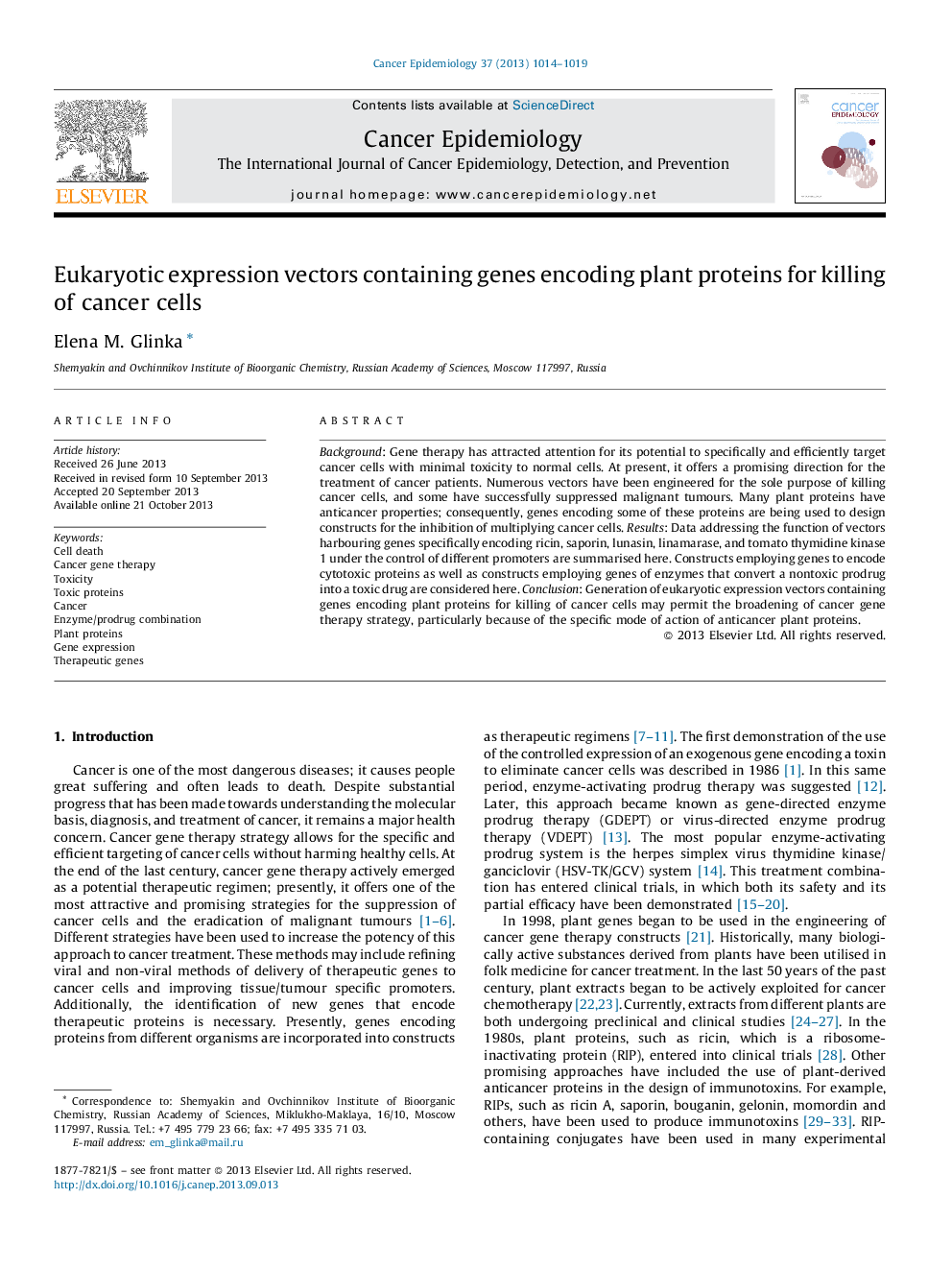| Article ID | Journal | Published Year | Pages | File Type |
|---|---|---|---|---|
| 2108874 | Cancer Epidemiology | 2013 | 6 Pages |
Background: Gene therapy has attracted attention for its potential to specifically and efficiently target cancer cells with minimal toxicity to normal cells. At present, it offers a promising direction for the treatment of cancer patients. Numerous vectors have been engineered for the sole purpose of killing cancer cells, and some have successfully suppressed malignant tumours. Many plant proteins have anticancer properties; consequently, genes encoding some of these proteins are being used to design constructs for the inhibition of multiplying cancer cells. Results: Data addressing the function of vectors harbouring genes specifically encoding ricin, saporin, lunasin, linamarase, and tomato thymidine kinase 1 under the control of different promoters are summarised here. Constructs employing genes to encode cytotoxic proteins as well as constructs employing genes of enzymes that convert a nontoxic prodrug into a toxic drug are considered here. Conclusion: Generation of eukaryotic expression vectors containing genes encoding plant proteins for killing of cancer cells may permit the broadening of cancer gene therapy strategy, particularly because of the specific mode of action of anticancer plant proteins.
